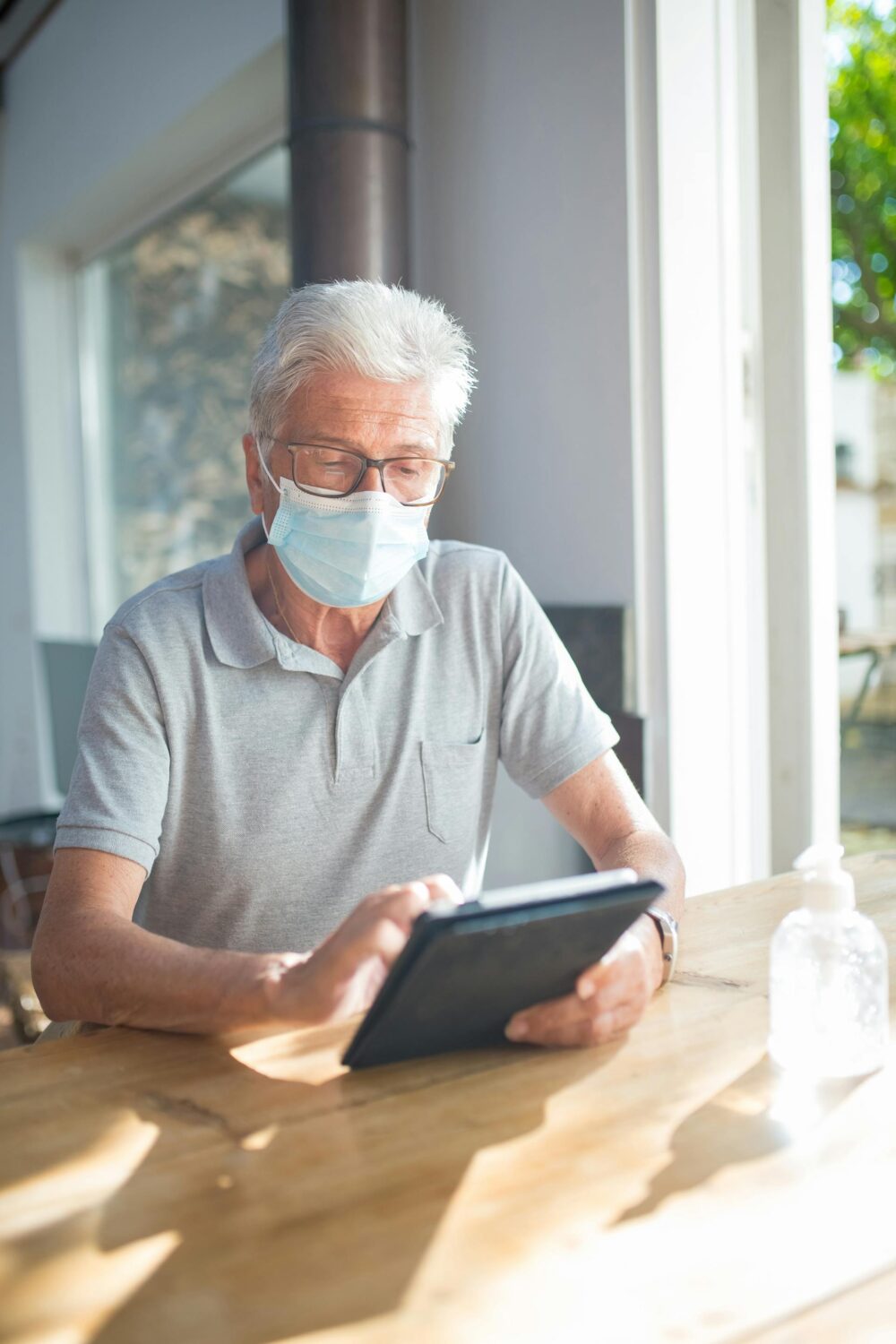Preventing Social Isolation During COVID-19
DOWNLOAD THE GUIDE: Preventing Social Isolation During COVID-19
Aside from the obvious concerns of loneliness and isolation created by social distancing, evidence also suggests that social isolation can and does have a real impact on the mental, emotional, and physical health of individuals of all ages.
We must do our part to help prevent the spread of COVID-19 while also supporting those who live alone. For those of us who have loved ones who face loneliness and social isolation, and for those who are caregivers providing care for those who are socially isolated, what can we do? Luckily, there are steps we can take to combat social isolation in the midst of a pandemic.
READ MORE: CDC Recommendations for Coping with Stress and Anxiety During COVID-19
Preventing depression in older adults during COVID-19 is essential.
Depression and loneliness themselves can impact wellbeing, but depression can also lead to anxiety and may play a significant role in how our immune system functions. Research has shown depression can suppress the immune system, making it harder for our bodies to fight minor illnesses, let alone those like COVID-19 which we have no immunity to.
In order to help prevent not only loneliness and anxiety but also to prevent COVID-related illnesses, it’s essential that we work to combat social isolation, even while working to prevent the spread of COVID.
READ MORE: COVID and the Elderly
How to Prevent Social Isolation During COVID
No matter who you are and where you live, you can help prevent social isolation during COVID-19. Here are a number of places to begin.
Check in.
Even if you are unable to visit a loved one or older adult in your life due to social distancing during COVID, you can still make sure they know you care about their health and wellbeing. Calls, text messages, and even cards and letters can let them know you’re thinking of them.
Check in regularly and consider setting up a scheduled time to chat with them in order to provide them with something to look forward to. Knowing someone will be calling or checking in can also provide peace of mind knowing they have someone who will be aware if they do not answer phone calls or text messages because of a fall or an emergency.
Take care of the essentials.
Even if your loved one is independent and typically provides for his or her needs on a regular basis, helping them take care of the essentials can be a relief during times of stress.
- Having their groceries delivered or delivering them yourself can ensure they have food provided.
- Cooking meals and storing them in their freezer or fridge for easy reheating can make mealtimes easy and convenient.
- Taking them to doctor’s appointments can provide support and company during what may be a stressful event.
- Ask a young neighbor or relative to mow their yard, water flowers and gardens, and move their trash can to and from the curb on delivery days.

Be supportive and encouraging
Each and every one of us struggles to feel hopeful when surrounded by individuals who are negative or who complain. One of the best ways to prevent depression in a loved one who lives alone or who is alone for extended periods of time is to be a positive and encouraging influence in their life.
- Instead of sharing negative or scary news surrounding COVID, share hopeful news or discuss other subjects.
- Share fun and light-hearted news and stories that can encourage.
- Share photos of grandchildren and news of loved ones that can bring a smile to their face. If possible, FaceTime or Zoom with grandparents and great-grandparents so they can see the faces of their grandchildren.



